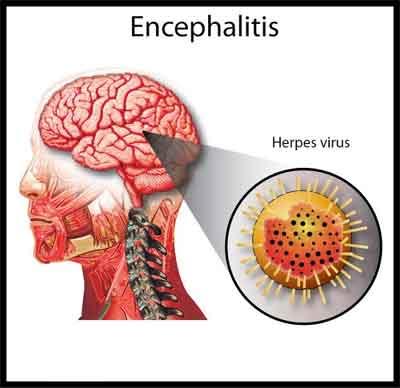- Home
- Editorial
- News
- Practice Guidelines
- Anesthesiology Guidelines
- Cancer Guidelines
- Cardiac Sciences Guidelines
- Critical Care Guidelines
- Dentistry Guidelines
- Dermatology Guidelines
- Diabetes and Endo Guidelines
- Diagnostics Guidelines
- ENT Guidelines
- Featured Practice Guidelines
- Gastroenterology Guidelines
- Geriatrics Guidelines
- Medicine Guidelines
- Nephrology Guidelines
- Neurosciences Guidelines
- Obs and Gynae Guidelines
- Ophthalmology Guidelines
- Orthopaedics Guidelines
- Paediatrics Guidelines
- Psychiatry Guidelines
- Pulmonology Guidelines
- Radiology Guidelines
- Surgery Guidelines
- Urology Guidelines
New treatment for a rare form of encephalitis

Anti-NMDA receptor encephalitis is an inflammatory disease that affects the central nervous system. It is a rare autoimmune disease that results in the body producing antibodies against the NMDA receptor, a protein that plays an important role in signal transduction in the brain. Using a new treatment regimen, researchers from Charité Universitätsmedizin Berlin and the German Center for Neurodegenerative Diseases (DZNE) have recorded significant progress in treating the disease, including in patients who did not previously respond to treatment. Results from this study have been published in the journal Neurology.
Anti-NMDA receptor encephalitis is a serious autoimmune disease. It is characterized by an inflammation of the brain, which can result in neurological and psychiatric symptoms, including psychoses, epileptic seizures and movement disorders. Standard treatments currently available are often either inadequate or ineffective in patients with severe forms of the disease. This treatment resistance may be caused by certain anti-NMDA receptor antibody-producing plasma cells that remain inaccessible to current immunotherapies.
In a study led by Dr. Franziska Scheibe and Prof. Dr. Andreas Meisel from the Department of Neurology and the NeuroCure Cluster of Excellence, Charité-based researchers recorded outcomes obtained using a new treatment regimen. In addition to standard treatment, patients received bortezomib, a drug known as proteasome inhibitor that has proven successful in treating patients with plasmacytoma, a specific type of blood cancer. Proteasomes play an important role in the degradation of proteins that regulate the cell cycle, thereby regulating cell growth. Given their high rates of protein synthesis, antibody-producing plasma cells display particularly high levels of metabolic activity. This renders them as sensitive to the effects of the drug as cancer cells, and results in their death.
In their study of five patients, the researchers were able to show for the first time that bortezomib treatment quickly resulted in clinical improvements in patients with severe forms of the disease. Treatment was also associated with a decline in the antibodies responsible for the disease. "'Bortezomib is capable of treating the causes of the disease by eliminating plasma cells. This makes it a valuable new treatment option in cases of anti-NMDA receptor encephalitis that have so far proven resistant to treatment," explains Franziska Scheibe, the study's first author. Future studies will focus on developing biomarkers capable of making early predictions on whether patients will develop a severe form of the disease. This should then allow physicians to initiate specific treatments early. "As is the case with all other treatments currently used in patients with this disease, our results need to be confirmed by randomized trials" notes Prof. Andreas Meisel.

Disclaimer: This site is primarily intended for healthcare professionals. Any content/information on this website does not replace the advice of medical and/or health professionals and should not be construed as medical/diagnostic advice/endorsement or prescription. Use of this site is subject to our terms of use, privacy policy, advertisement policy. © 2020 Minerva Medical Treatment Pvt Ltd